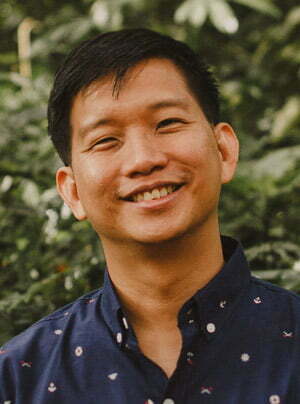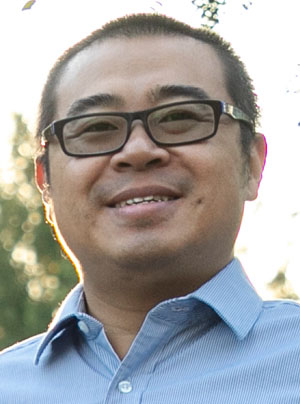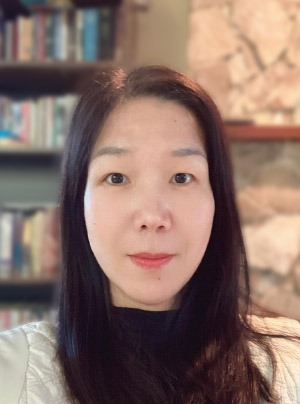We are a community of multi-cultural, multi-generational and imperfect people who have been brought together by the grace of Jesus Christ. We believe that God has brought you here and if you are new, we would love to meet you this Sunday!
We are so happy that you're here and we hope to meet you in-person soon. It's hard to know what to expect when you attend a new church service, so we've included some items below that we hope answers some immediate questions for you. If you have any more questions, just ask us!
For regular updates on the happenings at Immanuel, you can subscribe to our newsletter at the bottom of this page.
Our English Service begins at 11:00am on Sundays. We’d love to see you this coming Sunday!
Our style is a mix between modern (band with guitar, keyboard and drums, relaxed clothing, etc.) while also holding on to traditional practices (reading of the Heidelberg catechism, a praise anthem from the choir and singing of hymns). We observe Holy Communion every first Sunday of the month. Click here to listen to some of our latest sermons.
Yes! All children start at the main service with their parents for singing and listening to the choir anthem. They are then dismissed to their Sunday School classes. The teachers at Immanuel take great care in providing high quality programming and ministry for children of all ages. We strive to create environments that are both safe and celebratory of the children's age and stage of life.
Our teachers and staff undergo background checks and regular training and equipping to ensure that the very best care is being provided for the children at all times. We love what we do and the children we get to work with! Learn more about our children's ministries.
Yes! For those who would like to worship with us online, our Sunday Service live-streams can be found here: https://icrc.ca/livestream. We'd love to meet with you in person on Sundays, but we recognize that the online option continues to be a necessary feature in light of the times that we live in.
If you have more questions or would like to connect, please fill out this form and we’ll have somebody from our church reach out and connect with you!
The bulk of what we believe we hold in common with the Christian church around the world and throughout the ages. Three creeds adopted by the worldwide church centuries ago summarize the most important tenets of our faith:
To summarize these common beliefs, we’ll use the text of the Apostles’ Creed. But first an explanation. Despite its title, the Apostles’ Creed was not written by the apostles or disciples who walked and talked with Jesus in the first century. Instead it is a compilation of what believers in the first centuries knew from written and oral testimony, which was then distilled into the essentials of the Christian faith. This creed was reworked by successive councils of the early Church. It was adopted in its present form before the end of the fourth century.
A quick look at the structure of the Apostles’ Creed reveals one of the bedrock truths of the Christian faith: the Trinity. The creed is divided into three parts: God the Father, God the Son, and God the Holy Spirit. All Christians believe that the Bible reveals one God in three “persons.” In other words, God is a perfect community of love.
We belong under the Christian Reformed Church (CRC) denomination. The Christian Reformed Church includes just over one thousand congregations across the United States and Canada. About 75 percent of the churches are in the United States; 25 percent are in Canada. We’re one of only a few binational denominations: rather than split into different churches at the 49th parallel, we're united.
As a local church or congregation, we are a part of a wider network of local churches through our membership in the Christian Reformed Church of North America (CRCNA). The CRCNA is a Protestant Christian denomination in the United States and Canada and almost 300,000 people belong to the CRCNA—not a large number when you consider the population of our two countries. But by God’s grace we can accomplish a lot when we work together.
The word “reformed” in our denominational name signals our historical roots in the Reformation movement of the sixteenth century. Among the reformation groups which originated from that period were the Lutheran churches (associated with Martin Luther) and the Reformed churches (associated with John Calvin). The Reformed tradition in England and Scotland took the form of the ‘presbyterian’ churches. The Dutch immigrants in North America founded what later became the Reformed Church in America (RCA). Out of the RCA was born our denomination (CRCNA) in 1857.

English Congregation Pastor
Pastor Vic serves as the pastor of Immanuel CRC's English congregation. He holds a Master of Divinity degree from Regent College and is passionate about teaching and preaching Scripture, spiritual formation, discipleship, and cultivating a missional community.
Prior to becoming a pastor, he worked as a project manager in the Singapore government and the IT industry. Vic and his wife, Isabel, enjoy reading, singing, studying the Hebrew language, hiking, snowboarding, and going on road trips. Their two babies, Shiloh and Zoe, are with Jesus, and their hearts long to meet them again one day.

Youth Ministry Pastor
Canaan holds a Masters of Arts in Theological Studies from Regent College. He serves the youth at Immanuel CRC. He is passionate about walking alongside others, discipleship, teaching, and spiritual formation. Before stepping into this pastoral role, Canaan's prior marketplace experience included education as well as marketing. In his free time, he enjoys playing basketball, meeting new people, and has a passion for walking alongside others in Christ.

Mandarin Congregation Pastor
Pastor Luke is the lead pastor of ICRC Mandarin congregation. He graduated from Biblical Seminary of the Philippines and Regent College. Both Pastor Luke and his wife, Pastor Grace, love the Word of God. They have three kids: David, John, and Joshua.
Pastor Luke likes himself to be described as, according to Romans 1:1, "A servant of Christ Jesus".

Mandarin Congregation Assistant Pastor
Pastor Grace Liu is serving as the assistant pastor to the Chinese congregation at ICRC. She graduated from the Biblical Seminary of the Philippines. Pastor Grace loves to preach and share His Word. Her greatest satisfaction and joy are the changes in people's hearts and souls through Jesus Christ and the Teachings of the Lord. She earnestly hopes that each and every child of God can enjoy a true and intimate relationship with the Savior, our Lord Jesus Christ.

Mandarin Congregation Assistant Pastor
Chen Zhiyi is a graduate of the Canadian Chinese School of Theology Vancouver. She assists the Mandarin pastor in the care ministry and she is part of the teaching ministry in the Chinese congregation. She is passionate about spiritual cultivation and caring; Longing for the Word of God, walking with the Lord and with others.
Chen Zhiyi's mission to serve God was as stated in Romans 12:1, "Offer your body as a living sacrifice, holy and pleasing to God."
We believe in one God,
the Father almighty,
maker of heaven and earth,
of all things visible and invisible.
And in one Lord Jesus Christ,
the only Son of God,
begotten from the Father before all ages,
God from God,
Light from Light,
true God from true God,
begotten, not made;
of the same essence as the Father.
Through him all things were made.
For us and for our salvation
he came down from heaven;
he became incarnate by the Holy Spirit and the virgin Mary,
and was made human.
He was crucified for us under Pontius Pilate;
he suffered and was buried.
The third day he rose again, according to the Scriptures.
He ascended to heaven
and is seated at the right hand of the Father.
He will come again with glory
to judge the living and the dead.
His kingdom will never end.
And we believe in the Holy Spirit,
the Lord, the giver of life.
He proceeds from the Father and the Son,
and with the Father and the Son is worshiped and glorified.
He spoke through the prophets.
We believe in one holy catholic and apostolic church.
We affirm one baptism for the forgiveness of sins.
We look forward to the resurrection of the dead,
and to life in the world to come. Amen.
Whoever desires to be saved should above all hold to the catholic faith.
Anyone who does not keep it whole and unbroken will doubtless perish eternally.
Now this is the catholic faith:
That we worship one God in trinity and the trinity in unity,
neither blending their persons
nor dividing their essence.
For the person of the Father is a distinct person,
the person of the Son is another,
and that of the Holy Spirit still another.
But the divinity of the Father, Son, and Holy Spirit is one,
their glory equal, their majesty coeternal.
What quality the Father has, the Son has, and the Holy Spirit has.
The Father is uncreated,
the Son is uncreated,
the Holy Spirit is uncreated.
The Father is immeasurable,
the Son is immeasurable,
the Holy Spirit is immeasurable.
The Father is eternal,
the Son is eternal,
the Holy Spirit is eternal.
And yet there are not three eternal beings;
there is but one eternal being.
So too there are not three uncreated or immeasurable beings;
there is but one uncreated and immeasurable being.
Similarly, the Father is almighty,
the Son is almighty,
the Holy Spirit is almighty.
Yet there are not three almighty beings;
there is but one almighty being.
Thus the Father is God,
the Son is God,
the Holy Spirit is God.
Yet there are not three gods;
there is but one God.
Thus the Father is Lord,
the Son is Lord,
the Holy Spirit is Lord.
Yet there are not three lords;
there is but one Lord.
Just as Christian truth compels us
to confess each person individually
as both God and Lord,
so catholic religion forbids us
to say that there are three gods or lords.
The Father was neither made nor created nor begotten from anyone.
The Son was neither made nor created;
he was begotten from the Father alone.
The Holy Spirit was neither made nor created nor begotten;
he proceeds from the Father and the Son.
Accordingly there is one Father, not three fathers;
there is one Son, not three sons;
there is one Holy Spirit, not three holy spirits.
Nothing in this trinity is before or after,
nothing is greater or smaller;
in their entirety the three persons
are coeternal and coequal with each other.
So in everything, as was said earlier,
we must worship their trinity in their unity
and their unity in their trinity.
Anyone then who desires to be saved
should think thus about the trinity.
But it is necessary for eternal salvation
that one also believe in the incarnation
of our Lord Jesus Christ faithfully.
Now this is the true faith:
That we believe and confess
that our Lord Jesus Christ, God's Son,
is both God and human, equally.
He is God from the essence of the Father,
begotten before time;
and he is human from the essence of his mother,
born in time;
completely God, completely human,
with a rational soul and human flesh;
equal to the Father as regards divinity,
less than the Father as regards humanity.
Although he is God and human,
yet Christ is not two, but one.
He is one, however,
not by his divinity being turned into flesh,
but by God's taking humanity to himself.
He is one,
certainly not by the blending of his essence,
but by the unity of his person.
For just as one human is both rational soul and flesh,
so too the one Christ is both God and human.
He suffered for our salvation;
he descended to hell;
he arose from the dead;
he ascended to heaven;
he is seated at the Father's right hand;
from there he will come to judge the living and the dead.
At his coming all people will arise bodily
and give an accounting of their own deeds.
Those who have done good will enter eternal life,
and those who have done evil will enter eternal fire.
This is the catholic faith:
one cannot be saved without believing it firmly and faithfully.
I believe in God, the Father almighty,
creator of heaven and earth.
I believe in Jesus Christ, his only Son, our Lord,
who was conceived by the Holy Spirit
and born of the virgin Mary.
He suffered under Pontius Pilate,
was crucified, died, and was buried;
he descended to hell.
The third day he rose again from the dead.
He ascended to heaven
and is seated at the right hand of God the Father almighty.
From there he will come to judge the living and the dead.
I believe in the Holy Spirit,
the holy catholic* church,
the communion of saints,
the forgiveness of sins,
the resurrection of the body,
and the life everlasting. Amen.
*that is, the true Christian church of all times and all places